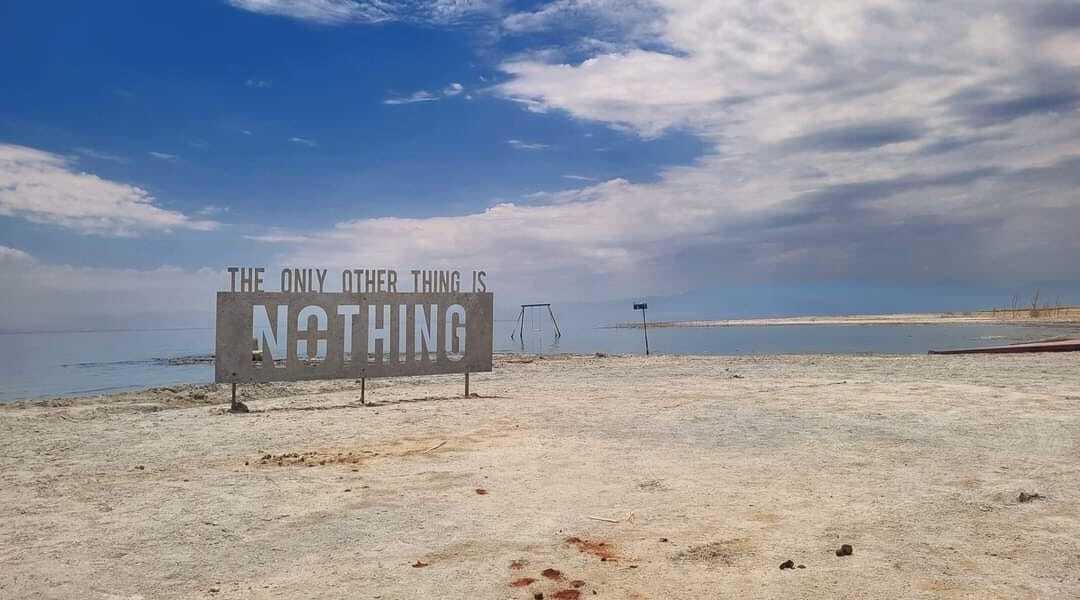My thoughts on the #futureoftheinternet, #digitalfreedom, #freedomofinformation, and #accessibility–with some #FOSS and #anarchy thrown in, of course.
I absolutely welcome comments and feedback offered in good will from the informed minds gathered in this particular digital space #Lemmy #Fediverse #keepsmesane
I thought this was going to be about setting up packet radio and making offline backups of Wikipedia, for when the world tears itself apart less than a year from now 😓
Stay tuned, as I have thoughts and ideas on that in an upcoming article.
(Make sure to like and subscribe, as the YouTubers say ;) )
Back in the day, I liked the idea of a piratebox like: https://piratebox.cc/ but the setup was too much. LibraryBox was the successor and it died as well.
Ive never tried it, but Butterbox looks interesting. If anyone knows any good backup systems let me know!
Right now, I just maintain a couple of yunohost setups because its easy and I dont have to put in a huge amount of work to get federated services up and running.
I have an upcoming article about this but: I just slapped together a older desktop machine with a large HDD and made it network accessible via my local network. Add Kiwix and a few other things and you’re most of the way there. The difficulty is getting people to use it.
I learned about https://32bit.cafe/ just today. Looks like a lot of people are starting to build up the communities again.
Oh wow, thank you for bringing this to my attention. I’m really glad to know folks are working in this direction!
Theirs also: https://tildeverse.org/ I know next to nothing about this rabbit hole but it looks cool.
tildeverse is great learn about gemini it’s the underground internet right out of of the early 90s.
Yes it is and it does my heart good to find it. Thank you all so very much.
Ive paid for private email hosting for years now, and run a bunch of services on a pi now. Google is almost completely out of my life, and my fb has been deactivated for years. I’m not kicking any corporate walls down, but it feels good to be the change I want to see. 🤷♂️
I honestly think that’s what we can do: start to build free, parallel structures and attract folks to join us. We can’t outspend Google but we can opt out of their ecosystem to some degree or another both collectively and individually.
It will definitely be decentralized. The biggest blows to real representative democracy happened when the courts made the “corporations are people / money is speech” arguments.
That one’s gonna haunt us for a very long time, even though it really just made official what had been happening routinely.
There’s a few things in here I would say you’re absolutely deriving from a fundamental misunderstanding of what they are.
-
Gatekeeping: I’m not sure what this means in your context, but it sounds like you’re imagining that some technically specific groups aren’t fond of outsiders, and make it impossible for newcomers to join. What you may be misunderstanding is that some groups - just as in any other field - are specific to a catered crowd for a reason, while others or not. There are proper channels to go through to get accepted into said groups, most of which in the FOSS world would be to create something adjacent to that space that becomes popular and recognized. Johnny Newcomer wouldn’t just be able to jump into the “1337 HaxX0rs Lounge” private IRC otherwise, but that isn’t gatekeeping. I can’t wander onto an MLB field, or an F1 racetrack just because I want to learn, and amateurs won’t get access to similarly skilled people in the technical communities for the same reason. Teaching newcomers can be time consuming and takes a lot of effort, and people just want to focus on their own things in their free time.
-
“Open Internet”: The Internet by its nature is open. Access to it is not, because the hardware is not, and the delivery is not. As far as places people can’t go, or don’t have access to, that’s quite subjective I suppose, but I’d say the majority of it is decided who is making what content, and how much they decide to charge for it and to where people can access it from, surely. If we dial things back 20 years, there was a lot more free stuff, but once corporations get involved - especially if they are publicly traded - they find ways to monetize everything. This does not prevent others from being able to publish at will whatever they want online, it just seems most people don’t bother anymore. A “Closed Internet” would more suggest you had to “pay to play” in that sense, but I’ve never seen an example of that happening in the real world.
-
Enshittification: I think you just missed the mark on this point from where the title and initial direction of your writing was heading. You’re right about corporations making things shitty out there, but they can only affect their own little places on the Internet as a whole. People don’t need search engines to use the Internet, they just prefer them. They don’t need streaming services, they just tend to use them. They do need unrestricted access to human services (governmental or otherwise), information, and communications to really thrive in the world we live. The ones who are fucking that up are the corporations consolidating that physical access, and the authoritarian governments who are restricting how you get that access, and what you can see from it. This is what is leading to the massive partitioning and decentralizing of the Internet as a whole and it’s services right now as we speak, which could be a good or bad thing depending on how you see it. Google censoring for governments is objectively awful, but there are other options.
I’m not trying to be nitpicky, so sorry if it comes off like that, but there’s some big swings for ideas in your writeup that presuppose some of the smaller ideas above, that I think shape the very ideas you’re writing about, but will unravel if thinking slightly differently about the root cause of them.
How would you suggest using the internet without search engines, and can that be accomplished in a way that is accessible to the average person?
The very design of the Internet is just a bunch of interconnected servers, and search engines just consolidate access to that. I don’t need that to reach my bank, or pay my bills online, or even to find code I’d like to use. They make it easier, sure, but name one site you go to that doesn’t have its own localized search built-in? My grandmother just needs to know how to do the things she needs to do, and that all works fine for her. My friend spends hours just link hopping on Wikipedia for no reason. My neighbor wants to find the best deals on whatever new thing he wants to buy, okay, you’ll probably need a search engine for that. Different use-cases.
Your writeup is presupposing that everyone NEEDS the latter kind of usage on the Internet, and that just isn’t the case. The use of a search engine is totally optional when you’re describing the Digital Divide, which is more about access to information and services being a human right. I don’t think the founders of that concept had Netflix and Amazon shopping in mind.
Thank you for that insightful response. I appreciate you taking the time.
Yeah, thanks for the writeup. It was a good read. You’re creating the kind of content you want to see more of, and we should all be doing more of that.
I’m not the person you are replying to but I do have one answer.
The Library of Congress should be tasked with maintaining a searchable index of Internet and World Wide Web sites. No ranking. Your skill at finding sites would be related to your skill with writing search queries
If you recall Altavista from the late 90s, I am thinking of something like that
-
Why all the hashtags? I feel like I just stumbled into an ad.
I’d love to tell you that it was an attempt at visual irony, but the reality is I originally posted this in another corner of the Fediverse and was too lazy to remove the #hashtags. The good/bad news is that I have nothing to sell you.
That’s fair
Recently I was thinking about how I missed webrings for websites instead of reliance on search engines, many of which aren’t even directing you to the sites anymore just showing AI summaries.
I don’t want to live in a world where the Arab Spring and the early days of Anonymous were the last hurrahs of the Wild West Internet and actual digital freedom.
The Arab Spring was not about “actual digital freedom”. It was a state-sponsored attack on non-aligned regimes, facilitated by Facebook, Twitter and a few other American companies, that ultimately failed to improve the lives of people living in the affected countries.
And thank you for bringing that up as it helps me illustrate my central point: the importance of a free internet isn’t online life in and of itself, but rather what the open flow of information and communication enable us to do in order to make the world a better place. Thanks for allowing me to clarify.
I absolutely agree, but I don’t think it’s too much to say that digital freedom and more important access to the internet and the various tools it offers played a starring roll in the Arab Spring.
Internet access on third world countries (at least in mine… I live in Brazil) is mostly Whatsapp/Facebook and sometimes other sponsored stuff, not the actual open Internet. Mobile telecoms usually offer packages with free access to that corporate-driven sh*t and a few GBs of traffic to other stuff. I’d hazard that this is true elsewhere on poor countries.
It’s a real challenge in large portions of the world. So many national governments are perfectly happy with a corporatized, compartmentalized internet–and willing to pass legislation to keep it that way.
Indeed. And it’s kinda hard imagining things getting better, since most politicians are corrupt fucks under the payroll of either national or foreign big money. The only hope I have is people’s revolution, Marxist style… but I don’t see it happening anytime soon. Maybe things will turn this way when our climate catastrophe starts to really rear its ugly head, but who knows? It might even go in the opposite direction, with the fascism blight we’re suffering reaching critical mass.





